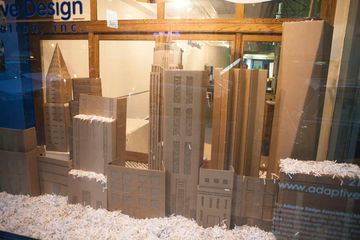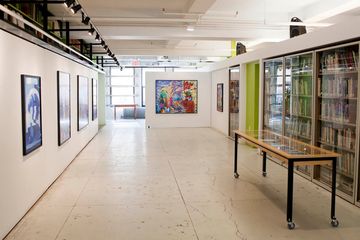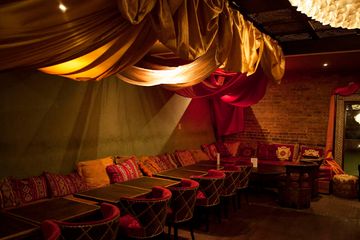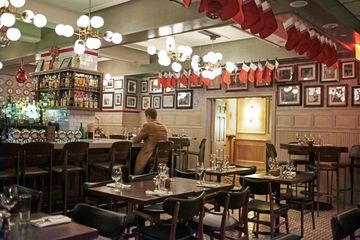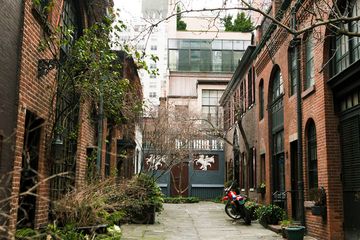Neon lights, on the back wall, greeted us as we entered Trademark Grind, the “boutique coffee bar” serving Sweetleaf Coffee Roasters from Brooklyn. In this quaint space, we were treated to excellent cups of hot chocolate, perfect on this winter day. A few minutes later, the PR manager, Matt, greeted us and invited the Manhattan Sideways team to follow him through a small entryway where we discovered Trademark Taste, a cozy, dimly lit restaurant... a safe little hideaway in the middle of bustling Midtown Manhattan. Opened in the spring of 2016, by In Good Company Hospitality, Trademark Taste & Grind serves a mixed clientele, from guests at the attached hotel and the pre-show crowd from Madison Square Garden to those looking for a unique weekend bar scene. The menu is impeccably curated by culinary director, Jeff Haskell, to featured favorites like Burrata and Knots and Tuna Poke. However, with its dark, mellow colors, graffiti motifs and hints of industrial flair, Trademark is all about the space. The walls are white and black with accents of red. Intimate hidden booths circle a large center bar, the anchor of the room. As soon as I took a look around, I wanted to settle into one of these booths for the evening. When I repeated this to Matt, he replied, “People tend to not want to leave. ”
